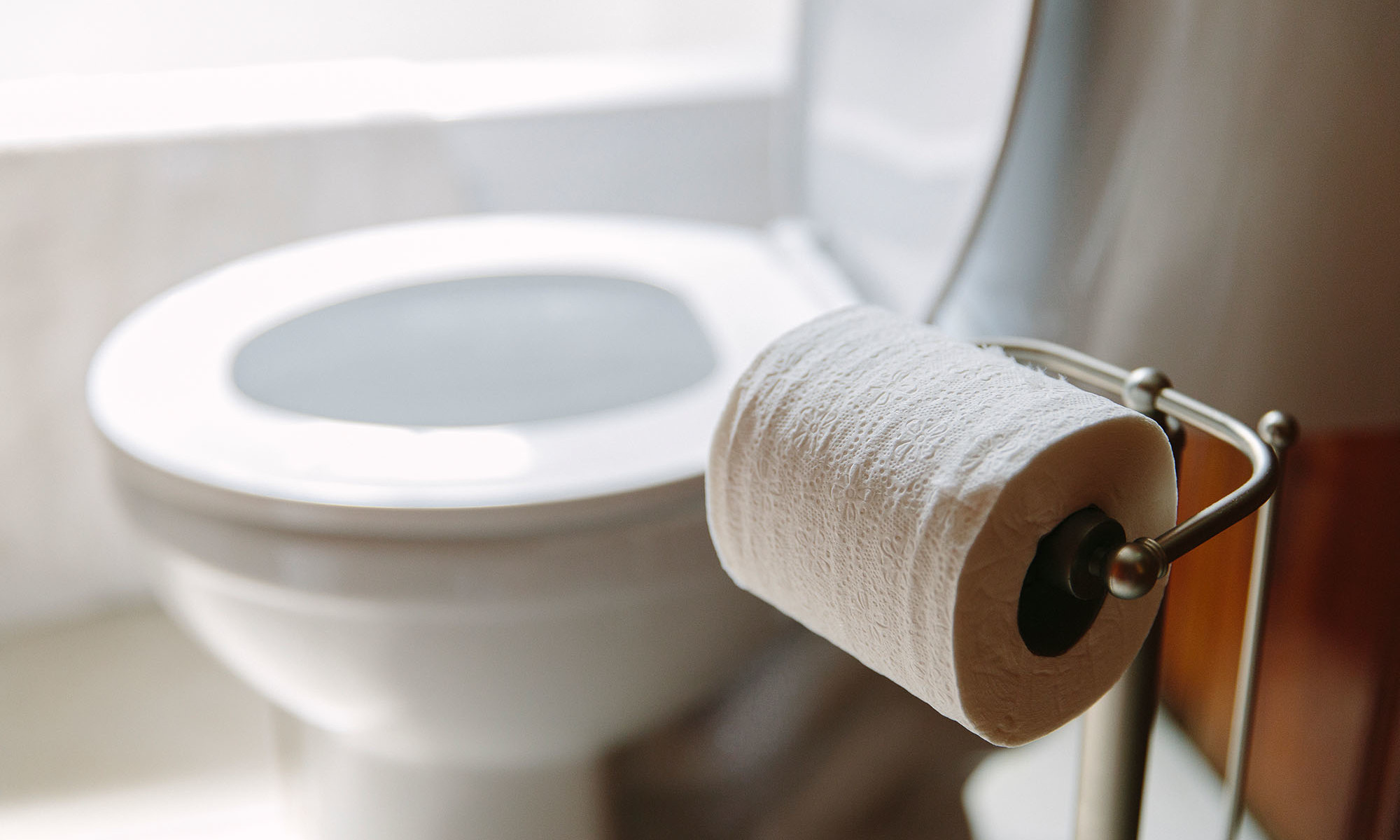PSA: If You Don't Poop Daily, Your Skin Will Suffer—Here's Exactly Why
Are poop and breakouts connected? Maybe.

Advertisement
This ad is displayed using third party content and we do not control its accessibility features.

Beauty & Health Editor
Beauty & Health Editor
Hannah Frye is the Beauty & Health Editor at mindbodygreen. She has a B.S. in journalism and a minor in women’s, gender, and queer studies from California Polytechnic State University, San Luis Obispo. Hannah has written across lifestyle sections including beauty, women’s health, mental health, sustainability, social media trends, and more. She previously worked for Almost 30, a top-rated health and wellness podcast. In her current role, Hannah reports on the latest beauty trends and innovations, women’s health research, brain health news, and plenty more.
Image by Raymond Forbes LLC / Stocksy August 31, 2024 We carefully vet all products and services featured on mindbodygreen using our Our selections are never influenced by the commissions earned from our links. While there are plenty of high-tech treatments and expert-backed products that can help you transform your skin, the first place you should look is your daily routine. Are you eating enough whole, natural foods? Limiting refined sugar intake? Drinking enough water? Getting high-quality sleep? All of these everyday bodily functions are essential to maintaining healthy, glowing skin. One often overlooked step: regular bowel movements. As board-certified internist Vincent Pedre, M.D., author of The GutSMART Protocol, explains on an mindbodygreen podcast episode, some skin conditions can actually be linked to skipping regular movements. 
The link between poop & skin
The best way to explain how bowel movements affect your skin is to focus on what happens when you don’t go regularly. Specifically for women, irregular bowel movements can increase the risk of estrogen dominance, Pedre says.
Jolene Brighten, NMD, women's hormone expert and author of Beyond the Pill, agrees: "If your bowels aren't moving, your estrogen sticks around longer than it should and goes back into circulation in the body," she previously told mbg. "You have to poop every day to get your estrogen out." If you don't, that estrogen buildup may only make you more constipated: Studies have shown that estrogen actually delays gastric emptying1, prolonging transit timing and causing constipation.
So skipping a daily pass can ultimately mess with your hormones, which can manifest in full-body and skin disruptions. "Poor metabolic waste elimination plus a hormone imbalance can wreak havoc on your skin," says Brighten. As you may already know, imbalanced hormones are strongly linked to breakouts around the chin and jawline, frequently referred to as "hormonal acne."
Even if you aren't dealing with more serious skin conditions, like acne or eczema, you can certainly face duller, drier skin from constipation. "When you're not pooping, [the toxins] have to come out in some way," says celebrity makeup artist Nam Vo, who coined the term "dewy dumpling skin." That's why she prioritizes a stellar No. 2 routine (probiotics, juices, and the like): "Topical skin care can only go so far. It starts from the inside out," she adds.
In short: Your entire body, skin included, is directly impacted by how often you poop. As Pedre notes: "Pooping is essential to detoxing the body, and the longer you retain your poop, the more likely that toxins that have been packaged ready to be moved out of your body are going to have more time to recirculate and get reabsorbed back into your body."
How to improve regularity
Inspired to elevate your poop routine for the sake of skin health? You can check out a full list of remedies here, but we've highlighted just a few tips:
The takeaway
Fun fact: If you skip regular bowel movements (read: once daily) your skin may suffer. To help your routine stay more consistent, prioritize fermented foods, add more fiber to your diet, and try to stick to a regular sleep schedule. Curious if your poop actually looks healthy? Here's how to find out.

 JimMin
JimMin 



























.png?trim=0,0,0,0&width=1200&height=800&crop=1200:800)



